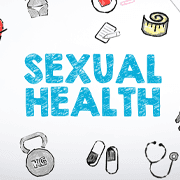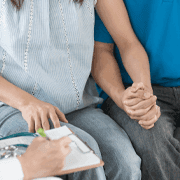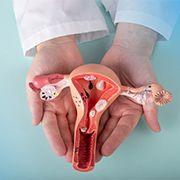Getting Tested for STDs: When, Where And How To Get Started
In This Article
Getting Tested for STDs: When, Where And How To Get Started
Dr. Sameena
Updated on February 12, 2025
Medically verified by Dr. Pournami
Fact checked by Dr. Arya

Wellness
10 mints
Whether you're starting a new relationship, had unprotected sex, or just want to be on top of things, regular STD testing is a smart move.
Are you willing to get tested for STDs and are completely clueless of what to do?
You’re not alone in this.
Karepedia is here to help you understand about STDs, types of STD tests, and when, where and how to get started with STD tests.
What are STDs?
First thing first, let’s understand what STDs are. They are infections that are mostly spread through sexual activity, including vaginal, oral, and anal sex, through close personal contact, such as kissing, or from a mother to an unborn child.
Why Should You Get Tested?
Here’s why you must get tested for STDs.
- Some STDs do cause symptoms. But most of the time, STDs have no symptoms. Testing is the only way to know for sure if you have an STD.
- Left untreated, certain STDs can cause devastating and long-term health problems such as blindness, brain damage, infertility, birth defects, and even death.
- Fortunately, all STDs can be treated, and some can be cured entirely. STD testing can help you get diagnosed and treated so you may avoid serious complications.
When Should You Get Tested?
You should get tested for STDs if you have any of the symptoms. Symptoms vary depending on the type of STD, but you may need testing if you have:
- Painful urination
- Pain during sex
- Unusual odor in vaginal discharge
- Vaginal itching
- Discharge and/or itching from the penis
- Sores or bumps in the genital or rectal area
- Itching, pain, irritation and/or swelling in your penis, vagina, vulva, or anus.
- Flu-like symptoms like fever, body aches, swollen glands, and feeling tired.
Benefits Of Getting Tested For STDs
Once you get it over with, it can really put your mind at ease. STD testing is a regular part of being responsible and taking care of yourself. Plus, STD tests can be quick, painless, and sometimes even free.
| STD Testing* | *Benefits|
|--------------------| ------------|
| Early Detection and Treatment | Detects and treats infections promptly, reducing complications and long-term health risks. |
| Prevents Transmission | Identifies and addresses infections to prevent spreading to sexual partners. |
| Protect Your Health and Fertility | Addressing STDs early can prevent complications that may affect reproductive health and fertility. |
| Peace of Mind | Knowing your STD status provides peace of mind, reducing anxiety and promoting emotional well-being. |
| Safer Sexual Practices | Encourages open communication about sexual health and encourages safer sex practices.|
| Community Health Impact | Reduces the overall prevalence of STDs in the community, contributing to public health efforts. |
| Facilitates Informed Choices | Enables individuals to make informed decisions about their sexual health and relationships. |
| Prevents Unintended Consequences | Helps avoid unintended consequences such as unknowingly transmitting infections to partners or unborn children. |
| Protects Against Serious Complications | Early intervention prevents or mitigates serious complications associated with certain STDs. |
| Empowers Personal Health Management | Taking control of your sexual health empowers you to actively manage and prioritize your well-being. |
 10mint
10mintSexual Health Matters: How To Maintain Your Sexual Health ?
 10mint
10mintYour Guide to Sexual Health Screening and Preventive Measures
 10 mints
10 mintsSTDs in Women: Comprehensive Guide on Symptoms and Treatments
Get a Callback Now
Who should get tested for STDs?
Wondering should get tested for STDs? Here’s a list for you.
- Sexually active women under the age of 25 Women 21 years and older. Women in this age group should get pap smear to check for abnormalities in the cervix.
- Pregnant women. Pregnant women are usually tested for HIV, hepatitis B, chlamydia, and syphilis.
- Sexually active men and women who have unprotected sex and are not in monogamous relationships.
- People who have sex without a condom should be tested regularly for HIV and other STDs.
- Men who have sex with men. Men in this group should be tested at least once a year for syphilis, chlamydia, gonorrhea, and HIV. Men with multiple partners may benefit from more frequent testing.
- People with HIV.
- People who use injectable drugs are at risk for HIV.
Pregnant women at their first prenatal visit should be tested for chlamydia, gonorrhea, syphilis, and HIV. For syphilis, retesting early in the third trimester is recommended for women who are at high risk, live in areas with a high number of syphilis cases or who tested positive in the first trimester. For HIV, retesting in the third trimester is recommended for women at high risk of acquiring HIV.
Types Of STD test?
Curious to know about the various types of STD tests before you go for it? Here’s all you should know.
- Blood tests
Used to diagnose syphilis, HIV, and sometimes herpes, chlamydia.
- Urine tests
Used to diagnose trichomoniasis and sometimes gonorrhea.
- Swab tests
Used to diagnose HPV, chlamydia, gonorrhea, and herpes.
Lumbar puncture (spinal tap)
This is not a frequently used STD test, but it may be ordered if your provider thinks you have an advanced stage of syphilis or if a herpes infection has affected your brain or spinal cord.
You may also be able to check for STDs with an at-home test. Home test kits are available for several STDs, including chlamydia, gonorrhea, syphilis, trichomoniasis, and hepatitis C. There are no risks to the test.
What do the results mean?
The test result will show whether you have an STD or not. If you are diagnosed with an STD, there is no need to feel embarrassed or ashamed. STDs affect millions of people.
If you have an STD, be sure to take the medicine as prescribed by your healthcare provider. It's also very important that you tell your partner, so they can get tested and treated, if necessary.
Many STDs don’t cause any symptoms so the only way to know for sure if you have an STD is to get tested.
Some curable STDs can be dangerous if they aren’t treated.
If curable STDs are left untreated, chlamydia and gonorrhea can make it difficult or even impossible for a woman to get pregnant later in life.
The chances of getting HIV if you have an untreated STD also increases and are also fatal.

